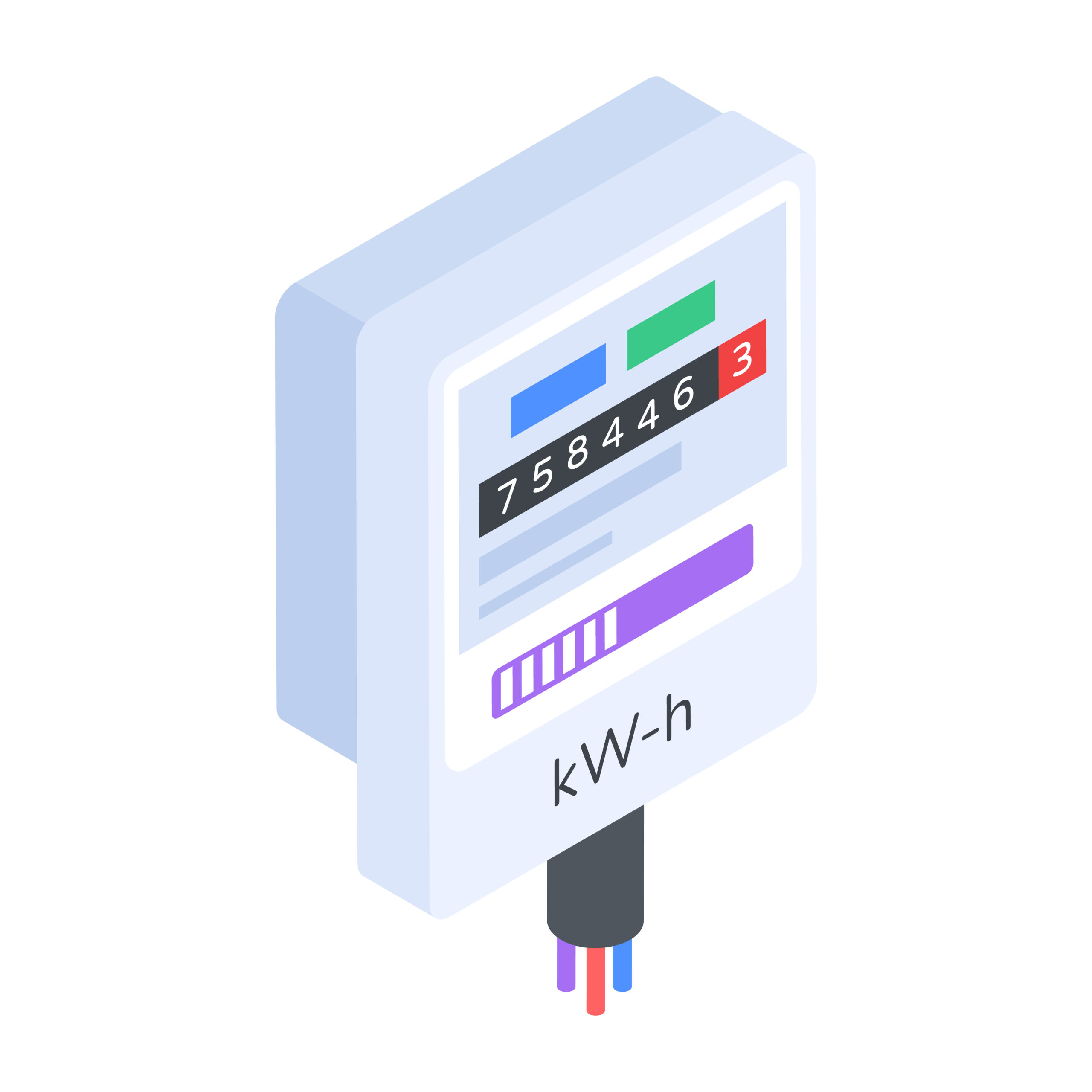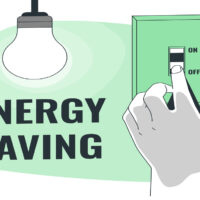A digital electricity meter measures electrical consumption in a concise, accurate manner. In today’s world, where energy efficiency and sustainability are vital, the role of a digital electricity meter is becoming increasingly important.
It provides a precise measurement of electrical consumption, allowing individuals and businesses to monitor and manage their energy usage more effectively. This technology allows for more accurate billing, real-time monitoring, and the identification of energy-saving opportunities. With its digital interface and advanced features, such as smart metering and remote access, a digital electricity meter makes it easier for consumers to understand and control their energy consumption.
By promoting energy efficiency and empowering users to make informed decisions, digital electricity meters contribute to a greener and more sustainable future.
Traditional Electricity Meters
Digital electricity meters have revolutionized the way energy consumption is monitored, offering increased accuracy and efficiency compared to traditional meters. By providing real-time data and remote access, these meters empower users to make informed decisions about their energy usage.
Mechanical Meters
Traditional electricity meters, also known as mechanical meters, have been used for decades to measure electrical consumption in homes and businesses. These meters rely on mechanical components to record usage, making them different from the newer digital electricity meters that use advanced technology for the same purpose. Mechanical meters consist of a rotating metal disc that is driven by the flow of electricity passing through it. The rotation of this disc is directly proportional to the amount of electricity being consumed. Inside the meter, gears and springs help convert the spinning motion of the disc into meaningful readings that can be easily interpreted.
Limitations Of Analog Meters
While mechanical meters have served us well for many years, they do have some limitations that have prompted the shift toward digital electricity meters. It’s important to understand these limitations to appreciate the benefits that digital meters offer. Firstly, analog meters are prone to wear and tear over time. The mechanical components inside the meter can become less accurate as they age, leading to inaccurate readings and potential billing discrepancies. Additionally, mechanical meters require manual reading by utility personnel, which can be a time-consuming process. Another limitation of analog meters is their inability to provide real-time data. With mechanical meters, it’s only possible to determine the total electricity consumption since the last reading. This lack of detailed information hampers efforts to track and manage energy usage effectively. Furthermore, analog meters cannot detect and report irregularities in electricity supply or identify electricity theft. Digital meters, on the other hand, are equipped with advanced features that allow for remote monitoring and analysis, making it easier to identify any issues and promote energy efficiency. In summary, while traditional mechanical meters have been reliable in measuring electricity consumption, they have limitations compared to digital meters. The shift towards digital electricity meters offers numerous advantages, such as increased accuracy, real-time data monitoring, and improved energy management.
Digital Electricity Meters
With the rising demand for smart energy solutions, digital electricity meters have become the game-changer in the energy industry. These advanced meters offer a wide range of benefits over traditional analog meters, bringing cost-effective and efficient monitoring and management of electricity consumption. In this blog post, we will explore the working principle, advantages over analog meters, and different types of digital electricity meters.
Working Principle
Digital electricity meters operate by measuring the flow of electricity through a system of electronics and microprocessors. These meters use digital signals to record consumption data and communicate the information to energy providers for billing and monitoring purposes.
Advantages Of Analog Meters
Digital electricity meters offer several advantages such as more accurate measurement of energy consumption, remote monitoring capabilities, real-time data access, and the ability to support advanced energy management systems. Additionally, they are tamper-resistant and have a longer lifespan than analog meters.
Types Of Digital Meters
There are various types of digital electricity meters, including prepaid meters, smart meters, and interval meters. Prepaid meters allow consumers to pay for electricity in advance, while smart meters offer advanced functionalities such as two-way communication and automated meter readings. Interval meters record electricity usage at regular intervals, providing detailed consumption data for better energy management.
Technology Behind Digital Meters
Digital electricity meters have revolutionized the way energy consumption is monitored and managed. These meters offer advanced features that enable more accurate billing, energy efficiency, and real-time data analysis. Understanding the technology behind digital meters can shed light on their numerous benefits for both consumers and utility companies.
Smart Metering
Smart metering is at the core of digital electricity meters. These devices utilize advanced communication technology to automatically record and transmit energy usage data. This real-time monitoring not only eliminates the need for manual readings but also allows consumers to track their energy consumption conveniently. By providing detailed insights into energy usage patterns, smart metering empowers users to make informed decisions regarding their electricity consumption.
IoT Integration
Integration with the Internet of Things (IoT) is a key aspect of digital meters. By connecting to IoT networks, these meters can seamlessly communicate with other smart devices and systems. This integration enables automated energy management, allowing for the implementation of smart home solutions that optimize energy usage. Additionally, IoT connectivity paves the way for innovative energy-saving initiatives and grid management solutions.
Data Analysis
Data analysis capabilities play a crucial role in digital meters. These devices collect a wealth of information regarding energy consumption, which can be utilized for in-depth analysis. By leveraging advanced analytics, utility companies can identify trends, detect anomalies, and improve grid performance. Furthermore, consumers can benefit from personalized energy usage reports, empowering them to make conscious choices to reduce their environmental footprint.

Credit: limestone.ng
Benefits Of Digital Electricity Meters
Digital electricity meters have revolutionized the way we monitor and manage energy consumption in our homes and businesses. These innovative devices offer numerous benefits that traditional analog meters simply cannot match. From real-time monitoring to enhanced energy efficiency, digital electricity meters provide users with valuable data, insights, and control over their energy usage.
Real-time Monitoring
Digital electricity meters provide real-time data on your energy usage, allowing you to understand how much electricity you are consuming at any given moment. With a digital meter, you can easily track your energy usage and identify patterns or activities that may be contributing to wasteful consumption. This information empowers you to make immediate adjustments and optimize your energy usage.
Energy Efficiency
One of the major benefits of digital electricity meters is their ability to promote energy efficiency. By providing detailed insights into your electricity consumption, these meters enable you to identify and address areas of energy wastage. Armed with this knowledge, you can make informed decisions on how to reduce unnecessary energy usage, leading to substantial cost savings and a reduced environmental impact.
Remote Access
Another remarkable feature of digital electricity meters is their remote access capabilities. With these meters, you no longer need to physically visit your utility provider for meter readings or wait for them to send someone for meter readings. Instead, you can conveniently access your energy usage data remotely, either through a mobile app or an online portal. This not only saves time and effort but also provides you with greater control over your energy consumption and billing.
Impact Of Digital Meters On Energy Consumption
Digital electricity meters have revolutionized how we monitor and manage energy consumption in modern households. These advanced meters provide real-time data on electricity usage, enabling users to track their consumption more effectively. The impact of digital meters on energy consumption is profound, leading to significant behavioral changes and a better understanding of energy usage patterns.
Behavioral Changes
With the introduction of digital electricity meters, individuals tend to become more conscious of their energy usage habits. Being able to see how much electricity is being consumed in real-time can encourage people to adopt more energy-efficient practices.
Energy Usage Patterns
Digital meters allow users to identify specific patterns in their energy consumption, such as peak usage hours or energy-intensive appliances. This insight can help individuals adjust their usage behaviors to optimize energy efficiency and reduce overall consumption.

Challenges And Concerns
Digital Electricity Meters offer numerous benefits, but they also bring along some challenges and concerns that need to be addressed for their successful implementation.
Data Privacy
Ensuring data privacy with digital electricity meters is crucial to safeguard sensitive information.
- Unauthorized access to consumption data
- Need for robust encryption methods
- Adherence to data protection regulations
Cybersecurity Risks
Protecting against cybersecurity risks is vital to prevent breaches and unauthorized control.
- Vulnerabilities in communication protocols
- Potential for hacking and tampering
- Implementing strong authentication measures
Integration With Renewable Energy Sources
As renewable energy sources become increasingly popular, the integration of Digital Electricity Meters with these sources is gaining momentum. This integration not only allows for efficient energy monitoring, but also promotes better utilization of renewable energy. In this article, we will explore how digital electricity meters optimize solar power and enable effective monitoring of wind energy.
Optimizing Solar Power
Solar power has emerged as a viable and sustainable source of energy. To fully harness its potential, it is essential to have a system in place that can accurately measure, monitor, and optimize solar energy production. Digital electricity meters play a crucial role in this aspect by providing real-time data on solar power generation.
Since solar power may fluctuate depending on various factors like weather conditions and time of day, digital electricity meters provide valuable insights to evaluate the efficiency of solar panels. This information can be utilized to identify any potential issues and take necessary measures to optimize solar power production.
By collecting and analyzing data on solar power generation, digital electricity meters enable homeowners and businesses to make informed decisions regarding energy consumption. This empowers them to maximize their reliance on solar energy, reducing their carbon footprint and lowering electricity costs simultaneously.
Monitoring Wind Energy
Wind energy is another renewable source that holds great potential. However, its efficient utilization depends on continuous monitoring, as wind speeds can vary significantly throughout the day. Digital electricity meters leverage their advanced capabilities to monitor wind energy production effectively.
By constantly measuring the output of wind turbines, these meters provide valuable data on the performance and efficiency of the wind energy system. This information helps in evaluating the impact of environmental factors on wind power generation and identifying areas for improvement.
Moreover, digital electricity meters enable the seamless integration of wind energy into the overall power grid. They ensure that the electricity generated from wind turbines is accurately measured and properly accounted for. This facilitates effective billing and enables the grid to handle the fluctuations in wind power supply.
In conclusion, the integration of digital electricity meters with renewable energy sources is a significant step towards a sustainable future. With their capability to optimize solar power and monitor wind energy, these meters empower individuals and businesses to make the most of renewable energy, paving the way for a greener and more efficient energy ecosystem.
Regulatory Landscape
The regulatory landscape for digital electricity meters is a crucial aspect governing their implementation and usage. Legislation and compliance play a pivotal role in shaping the impact of these meters on utility companies.
Legislation And Compliance
The implementation of digital electricity meters is subject to specific legislative frameworks and strict compliance regulations. These regulations are established to ensure the accuracy, security, and privacy of the data collected by these meters. Regulatory bodies such as the Energy Regulatory Commission (ERC) closely monitor the adherence of utility companies to these regulations, leaving no room for non-compliance.
Impact On Utility Companies
Digital electricity meters have a profound impact on utility companies, influencing various aspects of their operations. As per the regulatory landscape, utility companies are required to invest in advanced infrastructure to support these meters. Additionally, they are obliged to regularly report meter data to the regulatory authorities, ensuring transparency and accountability in their operations.
Case Studies
Case studies are a valuable tool for understanding how digital electricity meters have been implemented and their impact on various scenarios. Successful implementations showcase the benefits of digital meters, while lessons learned provide insights into potential challenges and improvements. Let’s take a closer look at these case studies:
Successful Implementations
One notable success story comes from a large urban area where digital electricity meters were installed in residential buildings. The meters allowed for real-time monitoring and remote reading, resulting in more accurate billing and reduced operational costs for the utility company. Additionally, residents gained insights into their energy usage, leading to improved conservation efforts and cost savings.
Lessons Learned
Several lessons were gleaned from the implementation of digital electricity meters in a rural community. While the meters provided valuable data for optimizing energy distribution, challenges arose related to communication infrastructure and data integration. By addressing these issues, the utility company improved the reliability and efficiency of the digital metering system, ensuring reliable service for customers.
Future Trends In Energy Monitoring
As technology continues to advance, the way we monitor and manage energy is evolving at an impressive pace. The future of energy monitoring holds great promise, with the potential to revolutionize the way we consume and conserve electricity. In this blog post, we will explore two key trends that are poised to shape the future of energy monitoring: Blockchain Technology and AI in Energy Management.
Blockchain Technology
In recent years, blockchain technology has gained significant attention across various industries, and the energy sector is no exception. Blockchain offers a decentralized and transparent platform that can transform the way we track and trade energy. With the help of smart contracts, blockchain can enable peer-to-peer energy trading, eliminating the need for intermediaries and reducing costs.
One of the key advantages of blockchain technology in energy monitoring is enhanced security. By using cryptographic techniques, blockchain ensures that the data stored within the system is tamper-proof. This makes it nearly impossible for unauthorized parties to manipulate energy consumption data. Additionally, blockchain can facilitate real-time auditing, providing accurate and transparent records that can be trusted by all stakeholders.
Ai In Energy Management
Artificial Intelligence (AI) is revolutionizing various industries, and the field of energy management is no different. AI can play a crucial role in optimizing energy consumption, predicting demand patterns, and reducing wastage. Machine learning algorithms can analyze large volumes of data collected from digital electricity meters and provide valuable insights for better energy management.
AI-powered energy management systems can automatically adjust energy usage based on real-time data, weather conditions, and user preferences. This not only improves overall energy efficiency but also helps in reducing utility bills. AI can also detect anomalies and potential faults in the energy grid, predicting maintenance requirements and preventing potential breakdowns.
Another application of AI in energy management is demand response. By using predictive analytics, AI systems can accurately forecast peak demand and automatically adjust energy usage accordingly. This not only prevents blackouts but also helps in balancing the load on the grid, enabling a more stable and reliable supply of electricity.

Frequently Asked Questions On Digital Electricity Meter
How Does A Digital Electricity Meter Work?
A digital electricity meter works by measuring the amount of electricity consumed in a property. It records the data digitally and provides accurate readings for billing purposes.
What Are The Benefits Of Using A Digital Electricity Meter?
Using a digital electricity meter enables accurate tracking of energy usage, promotes energy efficiency, and provides real-time energy consumption data for better monitoring and control.
Are Digital Electricity Meters Mandatory For All Households?
Many regions have mandated the installation of digital electricity meters to improve energy efficiency and enable more accurate billing. Check with your local utility provider for specific requirements in your area.
Conclusion
Digital electricity meters have revolutionized the way we monitor and manage our energy consumption. With their ability to provide real-time data and accurate readings, these meters offer significant benefits such as increased energy efficiency and cost savings. By empowering users with knowledge about their electricity usage, digital meters encourage responsible energy practices.
Embracing this technology can not only benefit individuals but also contribute to a more sustainable future. So, let’s embrace the digital revolution and unlock the full potential of energy conservation.




